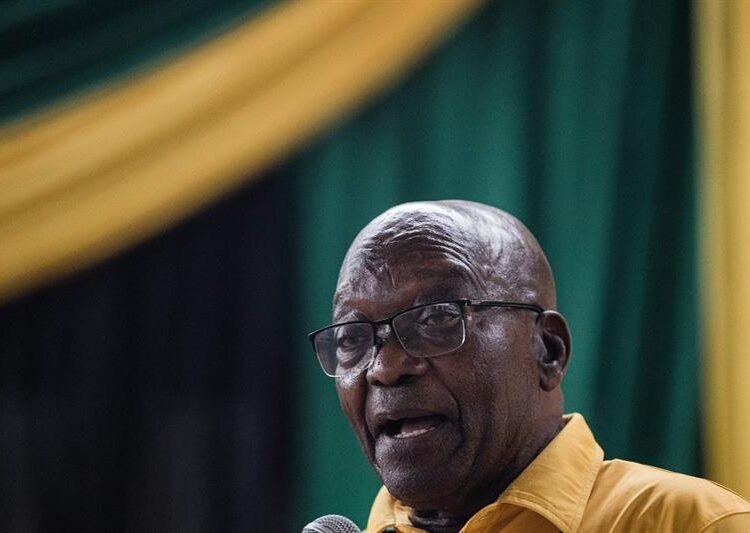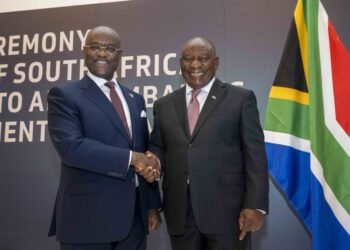The former president of South Africa, Jacob Zuma, has surprised many by re-entering the political arena to run in the upcoming elections against his former party, the ruling African National Congress (ANC).
Recall that Zuma, the country’s fourth president from 2009 to 2018, was compelled to step down amid a series of corruption allegations.
Amid corruption charges, he was briefly imprisoned in 2021 for contempt of court after defying a corruption inquiry.
Although initially sentenced to 15 months, Zuma was released after just two months due to health reasons. President Cyril Ramaphosa later commuted his sentence.
Despite facing legal challenges aimed at disqualifying his candidacy, the scandal-plagued former President has managed to navigate these obstacles and align himself with the small radical uMkhonto we Sizwe (MK) party, announcing his campaign in December.
The party is named after the armed wing of the African National Congress (ANC) during the struggle against white-minority rule.
To note, South Africa’s parliamentary elections are scheduled for May 29 and are expected to be the most closely contested since the end of apartheid. The president will be chosen by the elected members.
After three decades in power, the ANC faces the possibility of losing its majority and having to form a coalition government.
Recent surveys indicate that the ANC, once led by Zuma, is projected to fall below the 50 per cent mark for the first time since the end of apartheid in 1994.
A recent Ipsos poll suggests that the emerging MK party may secure over eight per cent of the vote.
Zuma is calling on his followers to “reclaim the nation.” Known for his powerful speeches, Zuma has intensified his criticism of the ANC, claiming he no longer recognizes the party and labelling its leaders as “traitors.”
Zuma’s efforts to undermine Ramaphosa, his successor as president, have fueled internal strife within the ANC for a considerable period.
The former president is known for his colorful and charismatic persona, often seen singing and dancing on stage, Zuma has maintained strong public support and continues to wield influence within the political establishment.






























































